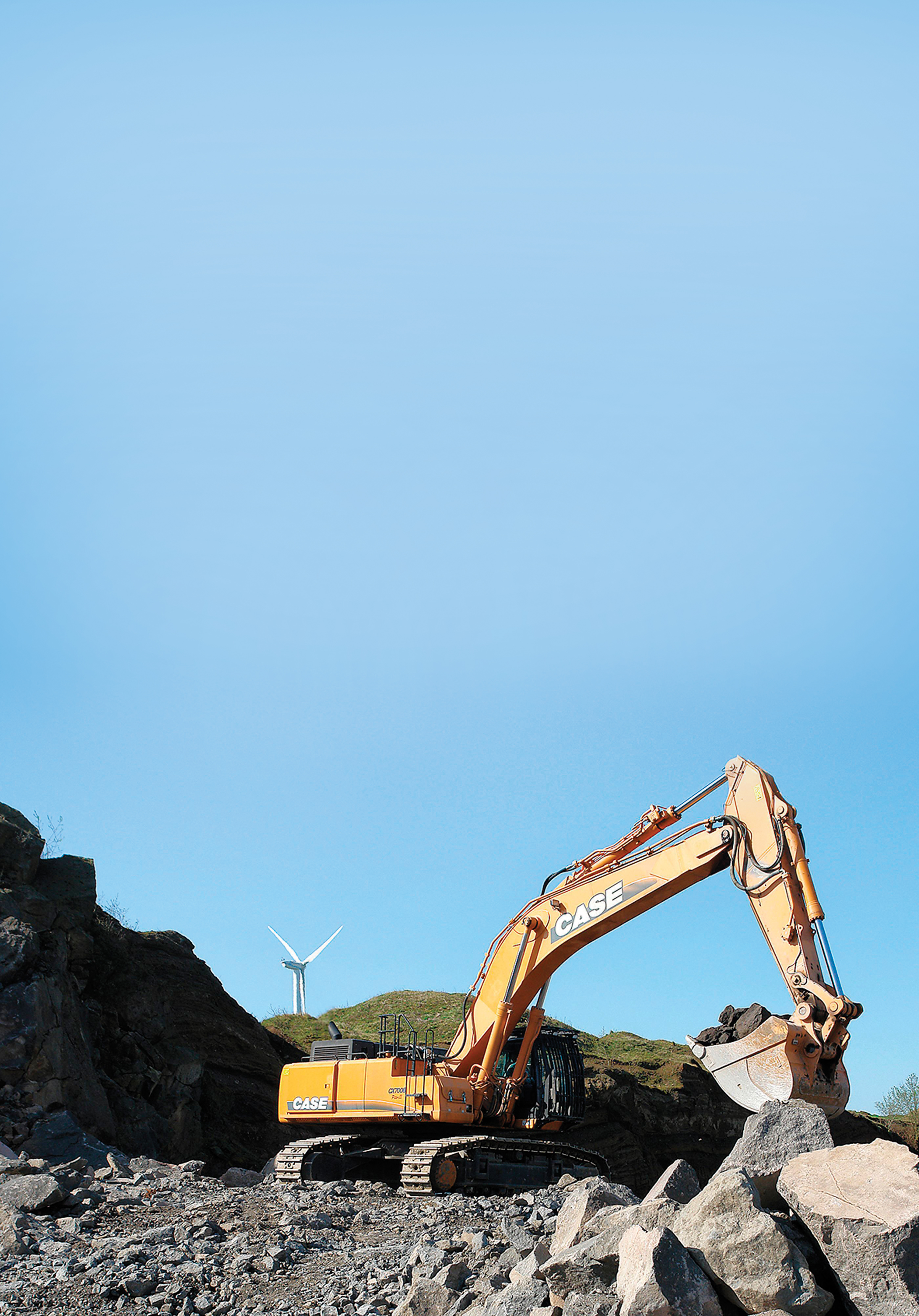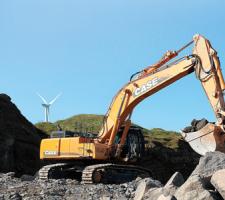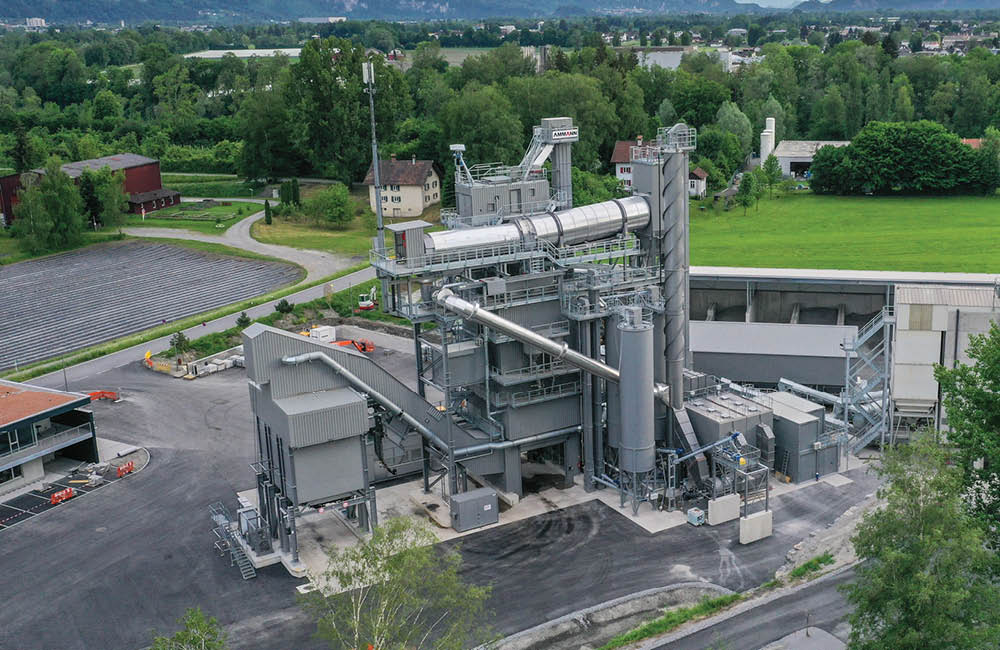
Delivery of a new Case excavator is helping one quarry in the volcanic Eifel region of Germany to improve productivity
Working with tough materials like basalt places extra wear on machines due to the high levels of abrasion, density of the material and need for large breakout forces. These were all factors that had to be considered when a new prime mover was needed at the Dockweiler pit in Germany's volcanic Eifel region.
Demand for road construction aggregates meant that Backes Bau und Transporte's quarry needed to increase productivity. The solution came in the form of a new 70tonne
"We took over the Dockweiler pit about three years ago," said Backes Bau und Transporte senior manager Peter Backes. "Until then, relatively unregulated, more haphazard extraction took place here. Then we began to examine the deposits in order to remove the abandoned contaminated sites and introduced sustainable management..
"First of all, it was necessary to provide our road construction operations with the required installation materials and aggregates. We never forgot our goal that other than to promote extraction, is to be as sound and sustainable as possible, with minimum impact on the local residents..
"The biggest problem in extraction is, of course, the detonations which are necessary in order to access the material. This is where our new excavator comes into play - by using the machine we can significantly reduce the number of necessary detonations and their depth." The new excavator was delivered to the quarry late last year from the Case factory branch in Groß-Gerau. The machine was delivered to the pit by low-loader in an operational state and, according to the quarry owner, has since then worked extremely profitably and helped to improve the operation of the site.
"Today we go with boreholes which are only 4 to 5m deep," explained Backes. "This means that the impact of the firing processes is considerably reduced. The excavator has such high tear-out forces that it can clear lighter covering material on its own, for the most part. It can also easily break out material on the standing wall with the pressure of the scoop tip, and can even crush it if the structure of the rock has been sufficiently loosened by the detonation. This makes it much easier to follow the workable layers in a targeted way, without unnecessarily digging up the countryside." .
According to Backes, the work at the quarry presents no particular challenge for the heavy excavator as it has a lifting capacity of over 30tonnes and a wide undercarriage. However, he added that in order to avoid expensive repairs to the crushing plant, which is designed for processing sizes up to a tonne, larger blocks are separated and crushed by a second excavator with a hydraulic hammer. The material is then loaded onto an articulated dumper and transported to the crusher.
All the material produced at the quarry is used within Backes Bau und Transporte's own road construction business and the company operates a total of five basalt quarries in the region. Backes estimates that the total annual production is around 200,000tonnes with reserves at the Dockweiler quarry expected to last 50 to 100 years, depending on the ongoing level of demand.









